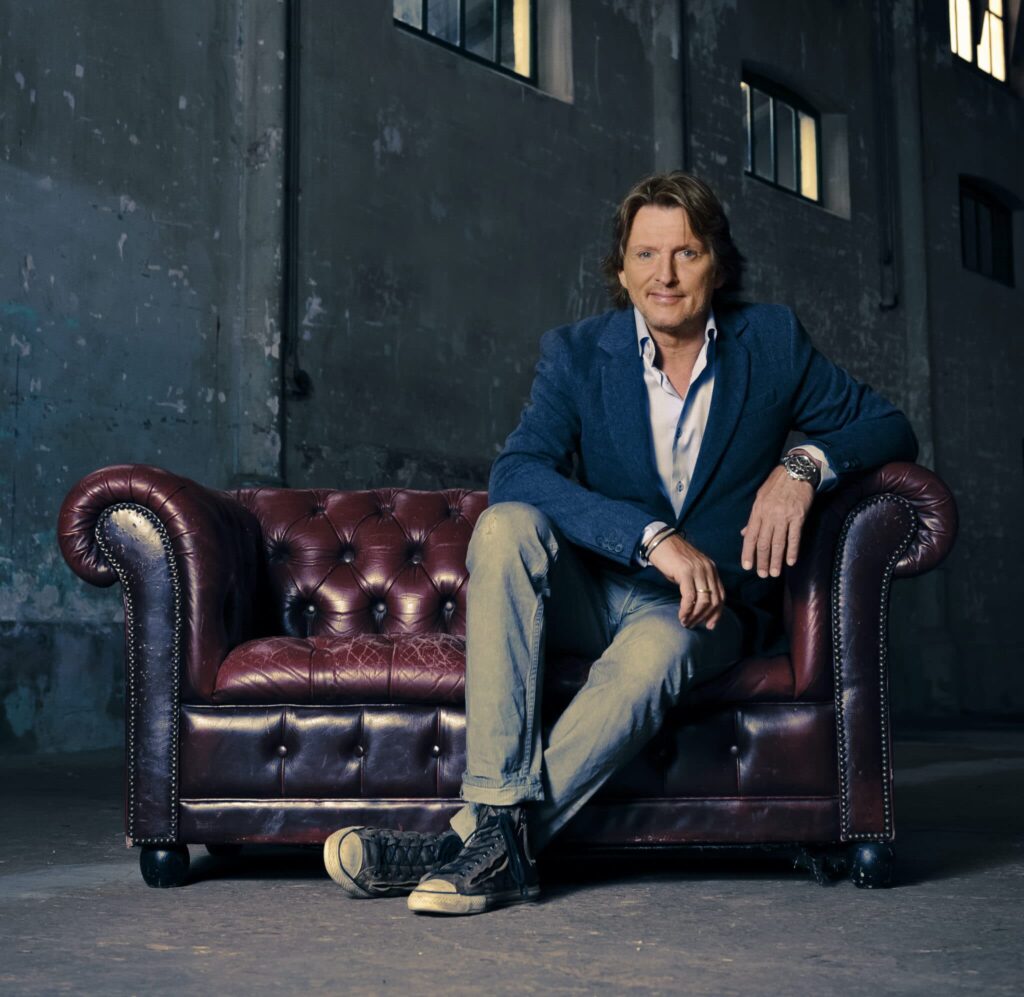ERIK DE ZWART, RADIO DJ & MEDIA ENTREPRENEUR
- donderdag 11 februari 2021
- 11:26
- Door: Mical Joseph

From adolescent disc jockey at local school parties to experienced radio producer at Radio Veronica to chairman of the Dutch Top 40 Foundation: media entrepreneur Erik de Zwart has had quite a bit of airtime during his career. But who helped him during his road to success? Who was his wheelbarrow?Text: Mical Joseph
Image: Erik de Zwart
"As a teenager I delivered newspapers and the PTT Post in Amsterdam-West. I did have to work alongside high school, as I had an expensive hobby: I wanted to become a disc jockey at the age of 13 and had to buy equipment."
"A friend of my brother's was a disc jockey at a drive-in show in high school. He played at various school parties and at one point I arranged a gig for the show. I also wanted to follow the same path and started playing my new hobby at school parties and sports clubs. Meanwhile, I stayed on and went from atheneum back to havo and eventually got my mavo diploma."
"In my time, there was actually no media training yet. I could have gone to the School of Journalism, but that didn't attract me at all, so I worked at different companies. Meanwhile, I was still working at drive-in shows, where I earned a good amount of money and traveled all over the country. I had two shows every weekend and was always working on my passion. Corry Vonk, my grandmother's sister, was married to Wim Kan, a well-known Dutch cabaret performer. Sometimes I went along and stood behind the scenes at the DeLaMar Theater in Amsterdam. That's how I was introduced to media a little bit."
"My father worked as a sales manager at an electrical wholesaler and my mother was initially a housewife until I was the youngest of the family and went to high school. She then took an office job. So my parents were not entrepreneurs at all. My brother and I, on the other hand, have always had an entrepreneurial spirit."
"Hilversum in the 1970s was a bastion that was very difficult to get into. For myself, therefore, I had figured out that I had to gain a lot of experience in order to advance in the radio world. I was self-taught and trained myself, so to speak. Before "presenting" myself at radio stations, I made the ultimate job interview tape at the age of 23. This I sent to KRO, as my family was Catholic by birth, and to the then new Veronica.
The bizarre thing was that I was hired at both so I had to choose. I chose Veronica, as this opportunity was one out of thousands. With not a whole lot of airtime, I actually liked it. This way I could see the Hilversum world from the inside as well as train myself!"
In the 80s I worked at Veronica, from '92 at Radio 538 as program manager, from 1995 as general manager, in 2003 I set up the radio arm of Talpa, including a couple of foreign radio stations and the job at Radio Veronica in 2014 was an interim job that lasted only 2 years. For the last 15 years I have been mainly an entrepreneur."
"Besides taking myself far, Lex Harding taught me the ropes of the radio business. He taught me not only how to make radio programs from A to Z, but also the business side. Lex was the one who took me to Radio 538 after which we made the station big."
"There is a huge range these days and something for everyone. When I started, only Hilversum 1, 2 and 3 existed. Hilversum 1 and 2 reported on agriculture and horticulture and Hilversum 3 played the records. Many people, of course, often switched to Hilversum 3.
I always have to laugh at Matthijs van Nieuwkerk and Leo Blokhuis. They act as if they invented the hits of the 70s and 80s, but the gentlemen did not play them at all back then. In fact, Blokhuis used to work at the EO and played psalms on Hilversum 3. The hits were played on Veronica and the AVRO."
"Doing my best and therefore getting the appreciation of the audience is high on my list. This appreciation is translated into the listening figures and I think everyone who is in the media does it for this to a large extent."
"A big learning moment was the start of Radio538 in 1993. Lex and I came from Hilversum 3 where we had 25 percent of the market share, 538 had three percent market share. So that was a wake-up call: there was a lot of work to do. By putting the mind to zero and just going ahead we got FM frequencies and 538 got name recognition."
"I have been a huge collector of model trains for much of my life and for the last fifteen years I have been taking occasional train trips to the Alps which I enjoy a lot. During one of my trips the idea of a platform where train enthusiasts can record their trips and share it with other enthusiasts was born. That's how 24Trains was born last year. It's Netflix among train fanatics all over the world. So no commercials or interruptions, just only content about trains."
"Above all, be yourself in what you do and hold onto the dream. It is important to continue where others give up, because then you can make your dreams come true."
"During my time at 538, I mentored fun, young talents who then went on to have glittering careers as (radio) entrepreneurs. I think it's important that hard-working young people get the chance to work with professionals so they get the experience they need."
© 2024 MASTERS EXPO. All rights reserved.